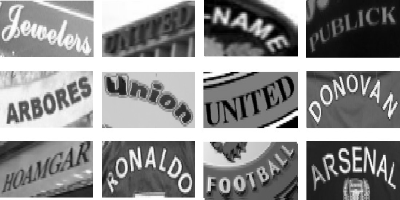MORAN is a network with rectification mechanism for general scene text recognition. The paper (accepted to appear in Pattern Recognition, 2019) in arXiv, online version is available now.
Here is a brief introduction in Chinese.
- More stable rectification network for one-stage training
- Replace VGG backbone by ResNet
- Use bidirectional decoder (a trick borrowed from ASTER)
| Version | IIIT5K | SVT | IC03 | IC13 | SVT-P | CUTE80 | IC15 (1811) | IC15 (2077) |
|---|---|---|---|---|---|---|---|---|
| MORAN v1 (curriculum training)* | 91.2 | 88.3 | 95.0 | 92.4 | 76.1 | 77.4 | 74.7 | 68.8 |
| MORAN v2 (one-stage training) | 93.4 | 88.3 | 94.2 | 93.2 | 79.7 | 81.9 | 77.8 | 73.9 |
*The results of v1 were reported in our paper. If this project is helpful for your research, please cite our Pattern Recognition paper.
(Welcome to develop MORAN together.)
- PyTorch 0.3.*
- TorchVision
- Python 2.7.*
- OpenCV 2.4.*
- PIL (Pillow)
Use pip to install the following libraries.
pip install -r requirements.txtPlease convert your own dataset to LMDB format by using the tool provided by @Baoguang Shi.
You can also download the training (NIPS 2014, CVPR 2016) and testing datasets prepared by us.
- about 20G training datasets and testing datasets in LMDB format, password: l8em
The raw pictures of testing datasets can be found here.
Modify the path to dataset folder in train_MORAN.sh:
--train_nips path_to_dataset \
--train_cvpr path_to_dataset \
--valroot path_to_dataset \And start training: (manually decrease the learning rate for your task)
sh train_MORAN.shDownload the model parameter file demo.pth.
- BaiduYun (password: l8em)
- Google Drive
- OneDrive
Put it into root folder. Then, execute the demo.py for more visualizations.
python demo.py@article{cluo2019moran,
author = {Canjie Luo, Lianwen Jin, Zenghui Sun},
title = {MORAN: A Multi-Object Rectified Attention Network for Scene Text Recognition},
journal = {Pattern Recognition},
volume = {},
number = {},
pages = {},
year = {2019},
}
The repo is developed based on @Jieru Mei's crnn.pytorch and @marvis' ocr_attention. Thanks for your contribution.
The project is only free for academic research purposes.


